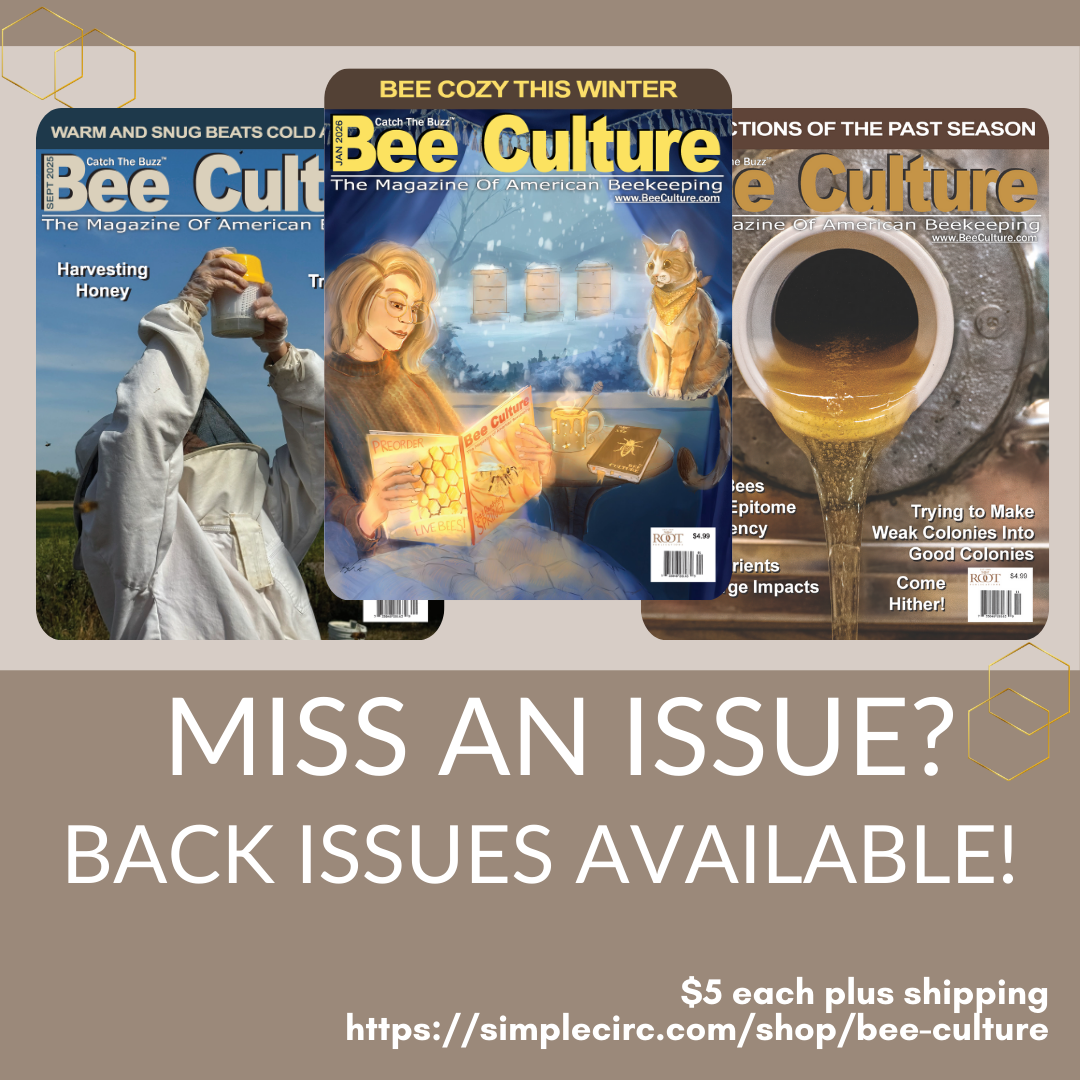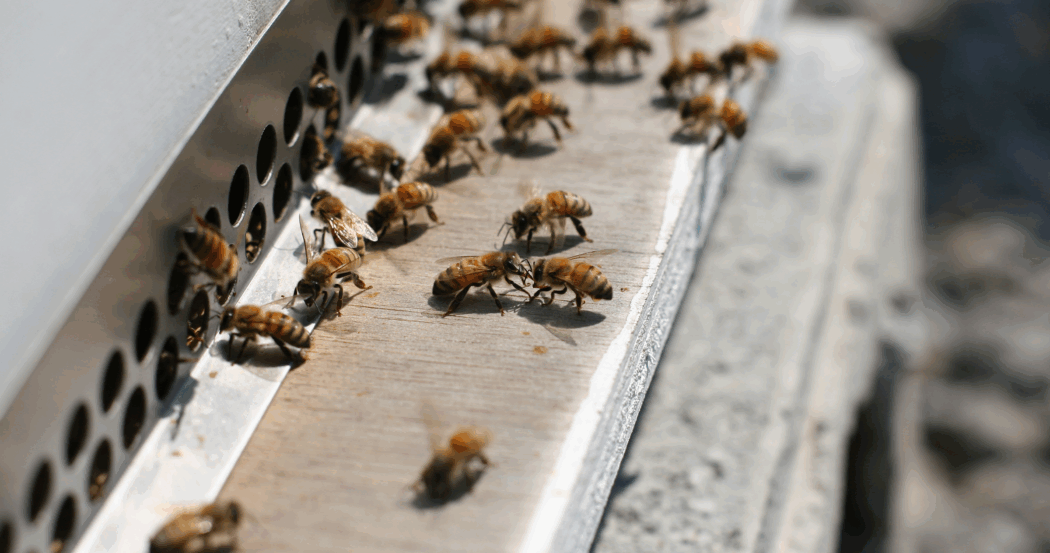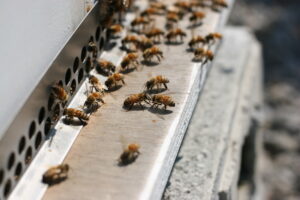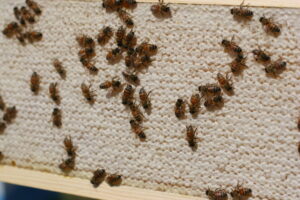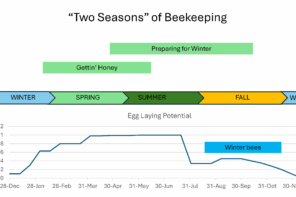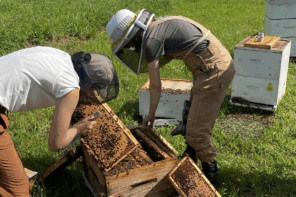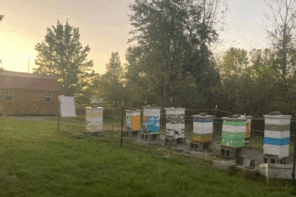Click Here if you watched/listened. We’d love to know what you think. There is even a spot for feedback!
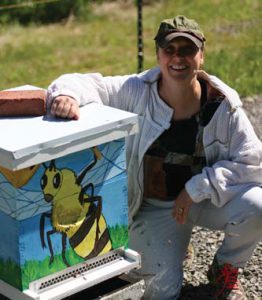
Changing Seasons
By: Tracy Farone
The change of season from Summer to Fall has always been a wonderful melancholy for me. One sees the bounty of the harvest and the beautiful colors of Autumn emerge, all along knowing that Winter is coming and chilling change is eminent. Living in a farming neighborhood, I am especially blessed to enjoy the fruits of the season. In late August, with only a couple of jars of honey as “payment,” I was (again) invited to one of my neighbor’s farms to pick some of their sweet corn. In the early morning, I met Deb, the 70ish owner of a family farm with expansive fields over rolling hills, to weave through the rows in search of about 100 ears to put up for the Winter.
“They aren’t very big this year, but they are still good to eat!” Deb quipped. “It’s not been a good year for corn. Too cold and wet in Spring, and now, too hot, and dry.”
As we shuffled through the stalks, Deb shared some of her farming wisdom.
“We (older farmers) know that there will be good years and bad. So, we prepare and save during the good for the bad, but the kids (young farmers), they already have the money spent, good or bad years, before the harvest comes in.” Deb shrugged. “But now I’m old.” (Ha! “old” enough to have 50 ears picked before I even got my bucket out).
The wisdom of the old, or shall I say experienced farmer, reminds me of the proverbial tree near the stream. Well rooted, prepared, and not worried about what may come. Knowing and accepting that unpredictable change is… predictable.
Presently, I am working through my own unpredictable change. During the very first week of the semester, I discovered our College apiary was set to be “bulldozed” due to a new athletic field project coming into the area. After 7 years of successful work, building the apiary site with my own hands, rearing all the bees, developing a nationally and internationally recognized research project with dozens of students and collaborators, you can imagine that my freshly formed eight student research team and I were stunned. I now have to pivot very quickly while attempting to sustain multiple moving parts… to rethink the whole thing, while in motion. I certainly have empathy for those in our beekeeping industry who are in the center of change (shout out to Beltsville).
Years ago, such news would have knocked me down onto the metaphorical mat. Now surprisingly, I blinked, still standing. While I experienced a myriad of emotions, instead of starting my own personal “Save the Bees” protest on campus, I got down to task pretty quickly, writing proposals and plans for an apiary move within a couple of days. I was actually excited about new possibilities that may turn out to be better over the long run. Maybe I’m getting “old”…
Apiculture is agriculture and we will experience challenges and unpredictable changes, predictably. Much like the stages of grief when situations change, it is important to acknowledge and process emotions, but later stages of grief are actions, like acceptance, finding a path forward in the time and circumstance we have been given governance over.
Preparation for the change is to apply wisdom to the situation. Wisdom is knowledge applied, taking what we already know and using it to prepare for the future, instead of repeating the same mistakes. We already know there will be good years and bad. We already know what is killing bees (varroa/viruses, poor nutrition). We already know what we should be preparing for (Tropilaelaps). We already know our extraordinary value. As a relatively small industry, we cannot afford to split into multiple political agenda arenas but instead we should wisely collect into one voice and focus on our irreplaceable posture within agriculture.
Many of you may have a favorite pet that has passed away. I am sure you can picture them now in your mind. Perhaps you wished your beloved dog or cat or horse, etc. would have lived forever. As a veterinarian, I have had to help many families adjust to losing a pet, an unpredictable change, which ultimately, was predictable. Euthanasia is one of the worst and best things I have done as a vet. During the euthanasia process, I am careful to explain what can be expected to the owner. Most folks very much appreciate the careful communication of the technicalities of what may occur. It is also important to allow time to process emotions as needed. It is hard to let go. But with time, more often than not, and a few weeks later, a new puppy or kitten or foal enters the grieving family’s life. All may not be healed but a new season has begun.
I have loved and lost dozens of pets in my life. Why can’t they live forever? But if I could only have had one pet in my life, I would have missed so many experiences, joy, and a chance to give them all a loving home.
Change can cause pensive feelings, but the wisdom of embrace changing seasons may provide new opportunities for an expansive and flourishing impact for both individuals and our industry.






